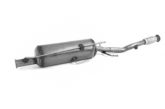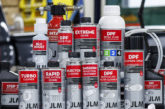
Mark Field, chairman of UK AFCAR, comments on the work the organisation is doing to lobby Government to improve access to data for the independent aftermarket.
Lobbying, in a post-Brexit era, has intensified through UK AFCAR – an alliance of both aftermarket associations and commercial organisations who mutually support the future of the UK aftermarket by navigating the UK parliamentary channels, as well as liaising with their EU aftermarket colleagues.
Most recently, UK AFCAR has welcomed and supported the Competition and Market Authority’s recommendations to maintain, revise and improve the MV-BER into an MVBEO (Motor Vehicle Block Exemption Order) as an important legislative pillar that supports both the principles and the framework of effective competition in the UK automotive aftermarket.
UK AFCAR also welcomed the aspects that are both logical and needed to address the compliance requirements since the current MV-BER was implemented, as well as changes in the sector created by new technologies and business models.
Consumer choice
The MV-BERs that the EU passed in 2002 and 2010 provided a sector-specific competition framework that contributed to keeping individual mobility affordable for consumers by protecting competition in automotive aftermarkets. It is important that the UK maintains appropriate measures to protect competition to the advantage of consumers, especially in times in which the overall cost of mobility continues to rise.
Therefore, consumer choice in repair and maintenance services, as well as spare parts, should be the objective of the revised national competition framework. Consumer choice hinges not only on the market presence of independent multi-brand repairers, but also on a functioning multi-brand supply chain of suppliers of spare parts (Tier 1 and independent), garage and test equipment, standardised multi-brand repair information databases, etc. – i.e. the complete independent aftermarket ‘value chain’.
Updated and detailed legislation is key to ensuring that this remains possible and is not circumvented by new vehicle design and new communication technologies that have been implemented by vehicle manufacturers.
Therefore, it will be important to have detailed legal and technical provisions that define how the requirements of the MV-BEO need to be fulfilled. This would require a link to UK vehicle type approval legislation that covers repair and maintenance information (RMI) that would also need to be revised to include detailed technical requirements that support the intent of the MV-BEO and ultimately ensure effective competition in the automotive aftermarket.
UK AFCAR therefore also welcomes the Department for Transport’s consultation in “Establishing a GB type approval scheme for road vehicles” to create a detailed and effective legislative framework for the various requirements of the vehicle type approval legislation, both in Northern Ireland and in Great Britain. UK AFCAR’s response to this consultation has been to support the UK aftermarket and the continuation of competitive choice for UK vehicle owners – both individual owners, as well as larger operators and providers of “mobility as a service”.
IT on wheels
Today’s vehicles are highly sophisticated and contain new systems and interfaces that are used to access the vehicle, its resources, functions and data (e.g. telematics that provides remote access to a vehicle). This also creates the need to have (cyber) secure vehicles, which UK AFCAR fully supports, but this should not be legitimised by legislation to create a monopoly for the vehicle manufacturer to control all aspects of the diagnosis, service and repair of the vehicle. There is already significant and increasing evidence of “abuse of dominant position” and the arbitrary implementation of the “rights and roles” of restricted access to the vehicle and its data by vehicle manufacturers.
A vehicle is now an IT system on wheels, with the vehicle manufacturer as system administrator with the corresponding ability to control all aspects of access, functions and data to all their competitors, which without robust and detailed legislation to define the technical requirements, will simply allow the vehicle manufacturers to dominate and control the market, including the significant distortion of the abilities of competing vehicle-related service and mobility service providers.
SERMI
We are therefore also calling on the UK government to adopt SERMI (Security related RMI). Key aspects are now in place, and it would be easy to deploy SERMI in the UK. The vehicle manufacturers will all have adopted SERMI for the EU by July 2023, with all necessary technical integrations, so it would make perfect sense for the UK to take advantage of this, especially as it will also be a requirement in Northern Ireland by this date.
The benefits of SERMI for the UK aftermarket are evident, with SERMI providing a one stop shop for accreditation of independent workshops and technicians, with their credentials being accepted by all OEMs.
The role of the legislator is increasingly important to support the future of the aftermarket – and with it, effective consumer choice – as new vehicle technologies and new business models are being implemented by vehicle manufacturers. The principle of nondiscrimination that was the bedrock of the original MV-BER must be maintained and revised, but other legislation to address the access and use of data and cybersecurity must also be put in place to ensure that the ability to be able to compete effectively remains possible for the UK aftermarket.









